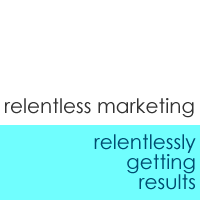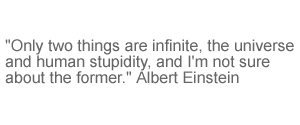







Licensing gravy train should hit the buffers

Financial Times, 28.10.03
By Bill Robinson
Buy any software package at a store such as PC World and take it to your home office for easy installation. Purchase an ERP software package for your small company from MySAP.com and have it sent via SAP's servers right to your own, using it within minutes. But don't you dare let anybody else have access to it, or risk prosecution.
When we buy a book, tape, CD, DVD or just about any other media you can think of, we are free to pass it on to a friend, associate or our mum for that matter. We are after all, buying that material and should have the right to do with it as we please (with the exceptions of plagiarising it and using it for commercial purposes.)
Software, however, is a very different story. We don't buy it, we license it. An individual or a company who buys software is purchasing a license to use that software for a specified number of machines, users or time period. You see, the Silicon Valley software pioneers were very careful to protect their revenue streams and clever about preventing their customers from freely sharing their product.
This is what the Linux revolution is all about - software licensing and cost. Although these tech groundbreakers were very proud of themselves for building such a tight little commodity chain with such egregiously large profit margins, they have recently suffered a series of legal setbacks in the US . These court losses may mean that the entire software industry will have to change the way in which they sell their product. They'll go kicking and screaming when their licensing revenue model, and as a result their entire business model, shifts underneath their feet but the consumer will finally receive a fair and just transaction from software vendors.
The software industry is about to have its world rocked. In the US recently, Network Associates even tried to prevent customers of its McAfee software from publishing reviews in chatrooms and consumer forums about the product by including a clause in the copious fine print of the software license. Fortunately, it looks likely to be squashed as a "censorship clause" and violating free speech rules.
On the other side, one fiery consumer in California also filed recently against Microsoft, Symantec and some large software retailers claiming that a "scheme" was concocted to force consumers to buy the software product before they could read the terms and conditions of the license which they conveniently shrink-wrapped inside the product box. Her point was that customers have to agree to the terms set forth before they buy the software. She's got a point.
The real beginning of the end for the software licensing gravy train may well begin with a fire in a book warehouse. The owner of the stored books sought insurance policy reimbursement for the lost, burnt and waterlogged remnants. After a short stalling period, the insurance company paid the claim and that was that - until the damaged and waterlogged owner sought to sell the books which could be salvaged. This threw the insurance company and the original publisher into a tailspin, resulting in court action against the book owner.
The court's decision supported the book owner's right to resell the books because he had not sold the books previously and also because they had been salvaged he had the right to sell them at least once. The decision was wisely extrapolated to the software licensing and copyright issue by technology observers.
SAP's R/3 and Microsoft Office are not A Tale of Two Cities, Casablanca or even Friends for goodness' sake. Why should a piece of software contain writer protections that the authors of other media don't? How come we aren't allowed to give a copy of an anti-virus program to a friend just like we might tape Sex in the City for a friend?
Because the software industry doesn't want us to, that's why. It'd be a scary thought indeed if the publishing, film or TV industry figured out how to prevent us from sharing their product. But shouldn't this devious little scheme for making software users pay more and be forbidden to share also mean that the software companies themselves should not copy, imitate or steal each others' software? Where's the egalitarianism in allowing rapacious monopolists free rein to smother competitors?
The reality is that very few tech-proficient people ever pay for software anymore; it's just too widely available from free sources online or mates who happily supply the registration code. Some call this theft. But many people seem happy to turn a blind eye, as happened with the Napster online file-swap service, or even believe it is acceptable to operate and cooperate in this contradictory fashion. Everybody does it, so it is.
What needs to happen and what I believe will happen is that the entire software industry will be forced to sell the software outright, with no licensing rules and very few regulations. Then software consumers will finally have the right to do as they please with the product they've paid for, instead of being strangled by unreasonable price points, after-purchase regulation and threats.
The reality is that very few tech-proficient people ever pay for software anymore; it's just too widely available from free sources online or mates who happily supply the registration code. Some call this theft. But many people seem happy to turn a blind eye, as happened with the Napster online file-swap service, or even believe it is acceptable to operate and cooperate in this contradictory fashion. Everybody does it, so it is.
What needs to happen and what I believe will happen is that the entire software industry will be forced to sell the software outright, with no licensing rules and very few regulations. Then software consumers will finally have the right to do as they please with the product they've paid for, instead of being strangled by unreasonable price points, after-purchase regulation and threats.
Copyright © 1994 - 2005 Relentless Marketing